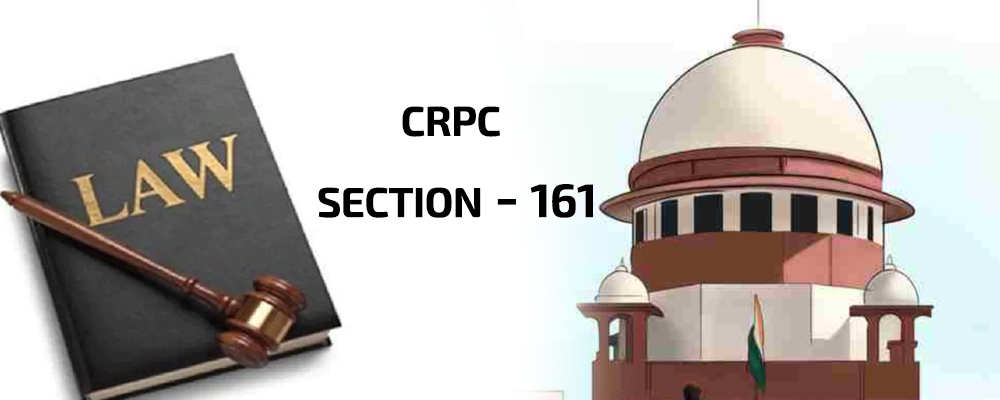Pre-trial procedures are followed before the trial for a particular case starts before the court of law. A pre-trial procedure includes police investigation, which is done to collect evidence related to the case. The two important aspects of an investigation is the discovery of the accused and to file charges against him and the other involves the search of the places and seizure of things considered necessary for the case i.e investigation and trial. Section
Examination of witness by the Police-
- Under Section 161 of the CrPC, police officers conducting the investigation can examine the witness and can record such statements in writing.It has to be noticed, that the investigating authority do not delay in recording such statements.
- In the case of Balakrishna Swain vState of Orissa(1971), there was an unexplained delay of 10 days and some contradictions were found in the statements.The Supreme Court observed that though the contradictions are not significant, however if seen with the delay in the investigation, the evidence is suspicious. The investigating officer should be asked about such a delay.
- In the case of [Ranbir v State of Punjab (1973] it was held that if the delay in investigation is not explained, then in such a case, the truthfulness of the evidence should be questioned. Also in the case of [Washeshwar Nath Chadda v State (1993) ], it was observed by the Court that a delay of a few hours could be accepted provided that it is proved that such delay was caused intentionally so as to provide an opportunity to the accused to make a case of his own.
- A police officer investigating a case is not bound to record the statement of the witness in writing, but it is desirable that the gist of such a statement is recorded by him. If even the essence of the statement of the witness is not recorded, such fact shall be taken into consideration by the court, as had the victim contradicted with his previous statement such statement of the victim could be questioned.
- Also a magistrate can not deny the prosecution’s application of examining a witness who has not previously recorded his statement under Section 161 of CrPC, the statement could still be recorded if the magistrate finds that the concerned police officer has not done his duty under section 173.
Need A Legal Advice
The internet is not a lawyer and neither are you. Talk to a real lawyer about your legal issue

Procedure of Examination of Witness-
- [13] it was held that if the witness alleges to have improved his statement as he did not give the same statement to the police under Section 161 of the CrPC, such so-called improved statement of the witness shall be called as omission and not contradiction. It could be a contradiction only if it could be legally proved and could be utilized by the accused.
Contradiction-
- If the witness gives the statement before the Court about the existence of a certain fact while not mentioning the same before the case, his statement before the court and the police becomes contradictory. Thus his statement before the police could be used to contradict his testimony before the court.
- In the case of Appabhai v State of Gujarat, the Hon’ble Supreme Court observed that while observing the evidence the courts should not attach much importance to minor discrepancies, if such issues do not affect the basic version of the prosecution.
Omission-
- If the witness testifies a certain fact in his examination-in-chief, while he did not mention such fact in his statement during the police investigation, the court has to decide whether such omission is minor or not. If the Court finds such omission to be material to the court, it would be material contradiction.
- It was held in the case of Ponnuswamy Chetty v Emperor [17], a minor omission could not be called a contradiction.
Evidentiary value of the Statement made during the police investigation-
- The statement given to the police is not under oath nor has it been tested by cross-examination, hence according to the law of evidence, such a statement is not considered as substantive evidence.
- The statement made under the Section 161 can not be used anywhere except to contradict the witness during the trial.
Lead India provides a wide pool of experienced lawyers who have experience in dealing with cases related to criminal offences, civil suits, family law, etc.





 Talk to a Lawyer
Talk to a Lawyer